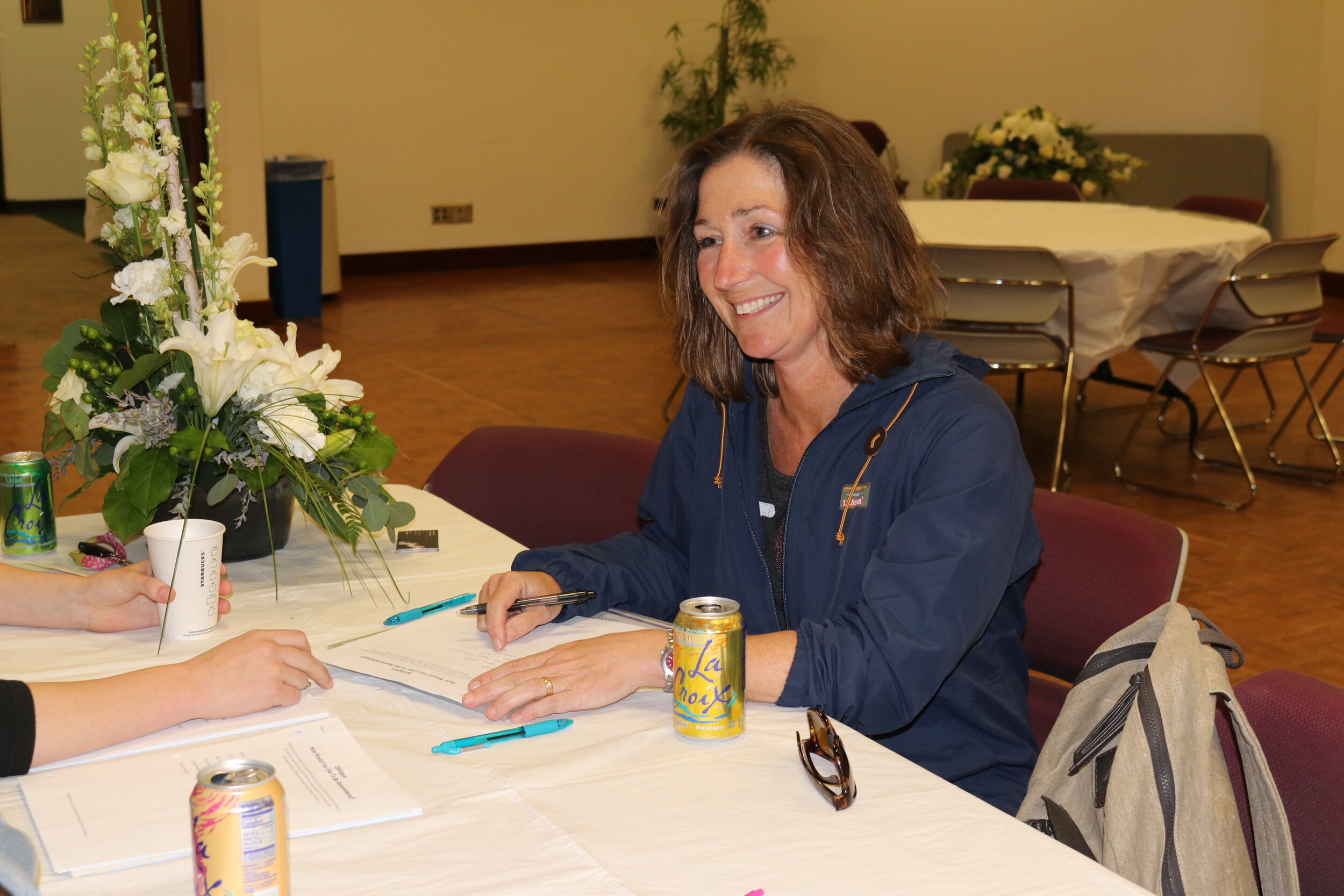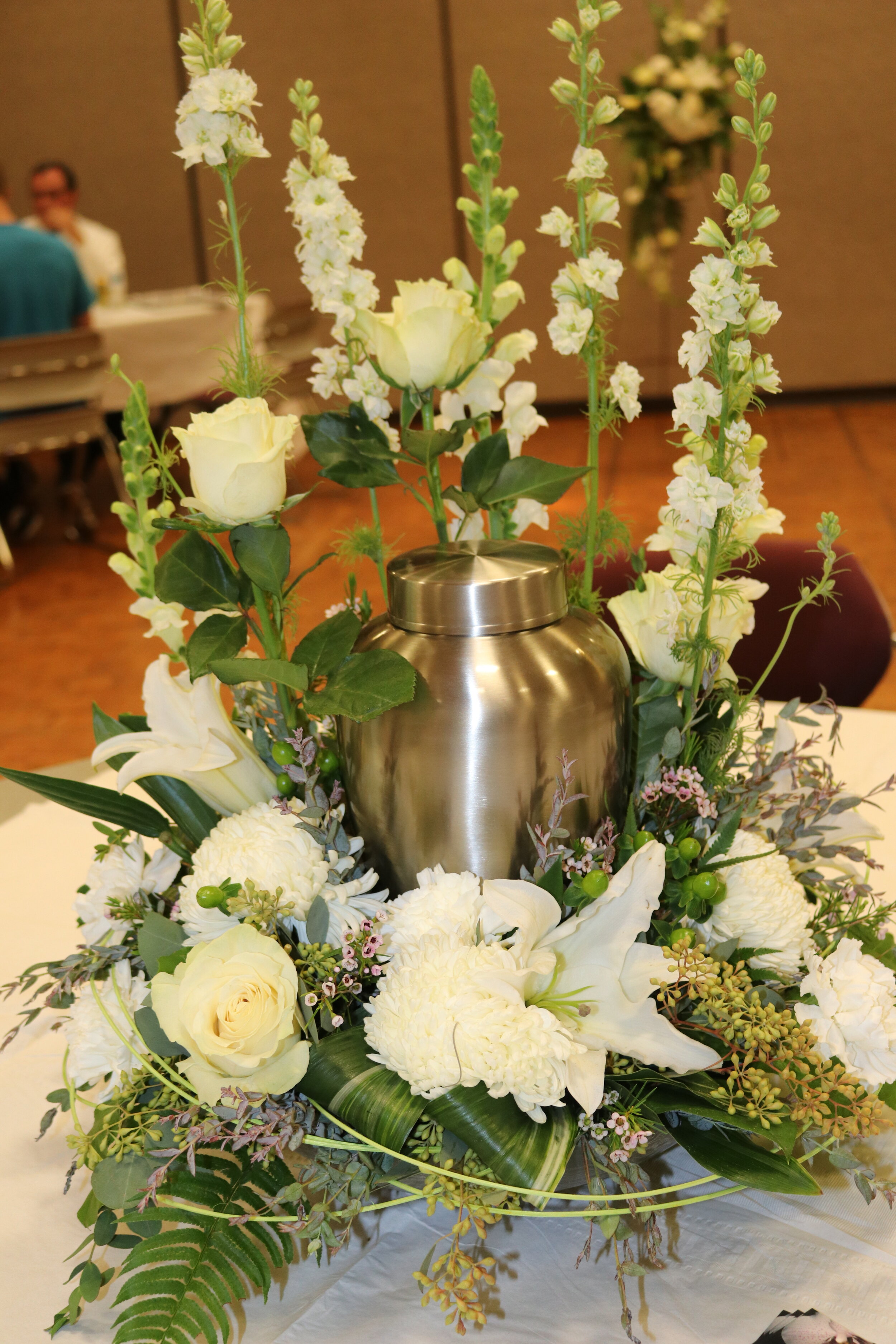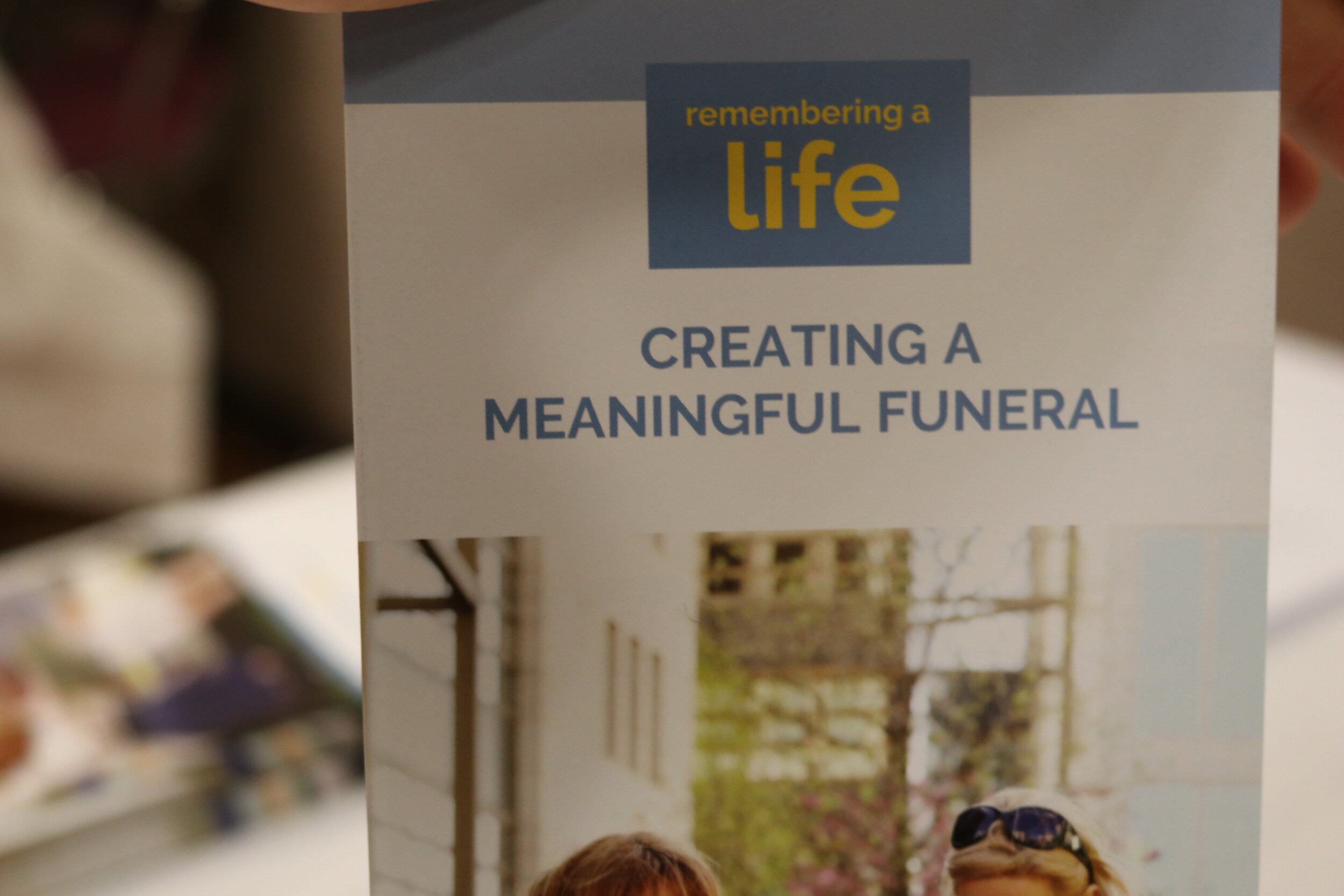How might we create a positive and comfortable process for people to make post-life arrangements such as determining a legacy, choosing personal aspects of a funeral, and saying goodbye to loved ones?
Epilogue began as a project focused on the topic of grief and loss, and what could be done to help people those feelings. The group of students went through lots of empathizing with those who had experienced loss, as well as those who work in a field that directly relates to death, including a service worker and a funeral home director. Through the empathizing phase, the students learned that the funeral planning process is long and stressful, and puts lots of pressure on the family while they are going through the grieving process.
The team realized that grief is a long and difficult process, and having to plan a funeral while also experiencing the grieving process can often become overwhelming. This problem became the center of the project, which focused on educating graduate students and helping them plan their own end of life celebrations, both to make it easier on their loved ones in the future, as well as help the young adults become more comfortable with talking about the topic of death.
An epilogue is defined as “the speech at the end of a book or play that serves as a comment on or a conclusion to what has happened.” This became the title of the project because of the student’s belief that people should have control of their own story and how they want to be remembered. The team spent weeks researching different aspects of funeral planning and the steps that need to be taken once a person has passed. The group also contacted many different businesses and professionals in the fields, to learn from them and use their help in the design thinking process.
Implementation consisted of a two-hour event at BSU, where five stations were set up to cover different aspects of funeral planning. The stations were Legal Documents, Body Preparation, Funeral Costs, Decorations, and Letters to Loved Ones. Each was run by one or two students who had done extensive research and were very knowledgeable about the topic. There were also several experts at the event to facilitate and help with any questions that the students were unable to answer. All were welcome to attend, although the target end users were graduate students attending BSU. Every station had one or more documents for participants to take home so that they would be able to continue their funeral planning process outside of the event.
Outcomes:
22 people attended the event, not all of which were graduate students. Many of the people who attended came because they had a genuine interest in funeral planning and wanted to plan their own end of life celebrations.
19 participants left their email address so that they could receive further information and learn more about One Stone.
Over 100 documents and flyers were distributed, with information ranging from floral arrangements to living wills. Participants seemed very surprised about all the different aspects of funeral planning, but grateful that they had the information and were preparing for the future.
The overall response to the project was very positive, and those involved were grateful for the opportunity to learn about a topic that often goes unnoticed.








